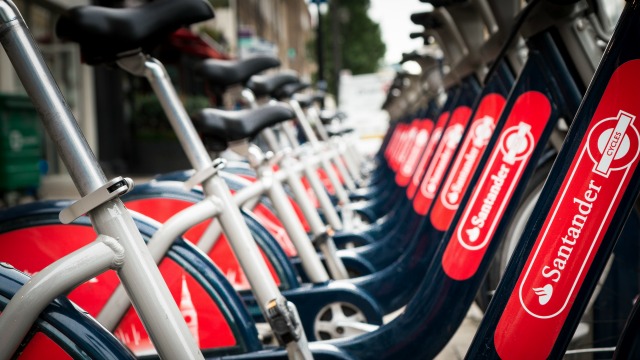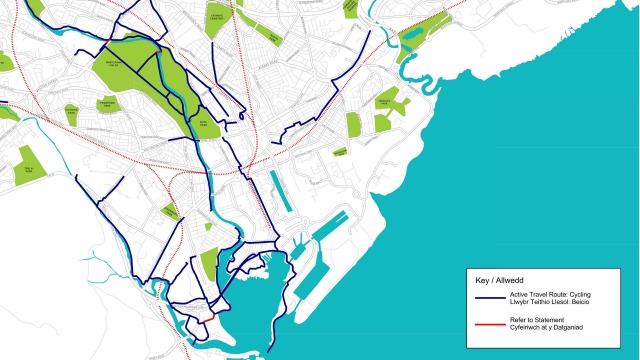Council plans to boost public transport with ‘rent-a-bike’ scheme that’s already popular in many European capitals

The transport ministry of Cardiff city council will soon offer a bike hire scheme with Boris bikes, the Santander sponsored service used for short journeys in London. From as little as £2 people will be able to cycle between several docking stations that will be built in the capital.
The scheme is the latest measure to boost cycling in the capital since Cardiff Council started Enfys, a project that commits to cycle route network development.
A previous attempt to bring bicycle hiring to Cardiff was tested in 2009, but had flopped. Justin Spinney, a Cardiff University lecturer and expert in urban geography, is hopeful it will be different this time.
“The key benefit of bike hiring is great for those who do not have space to store or purchase a bike. It also helps people who have to jump from one public transport to another without having to buy a folding bike,” says Spinney who has been doing research on cycling for years.
“Cycling needs to be taken seriously and that means investing in the highest quality infrastructure,” says Spinney. “It should also be able to accommodate increases in future cycling numbers.”
According to the expert, the old Cardiff bike renting scheme failed because it tried to work with a budget that was too small.
“There were few docking stations and the bikes were not the best quality. Many of Cardiff’s roads also need improvement as they are still too dangerous to cycle,” says Spinney who believes planning and urban design for cycling is still poor in the Welsh capital.

For Spinney, the problem is common to most UK cities.
“The cycle network is incomplete and patchy. Conditions are dangerous, often uncomfortable and unattractive. Conditions still favour cars. Cyclists have no legitimate space to call their own,” says Spinney.
Ken Barker, the secretary of Cardiff Cycling Campaign, believes the new bicycle renting schemes have the potential to encourage tourists, students and commuters to cycle more.
However, Barker is also sceptical about the viability of the scheme: “It will only work if it managed to include paid for advertising and is capable of sustained development and promotion commercially.”
Sian Donavan, from the cycling charity Pedal Power, believes security is essential for the project to work. “There need to be plenty of places to lock up the bikes and cycle lanes to link places together,” says Donavan.
Spinney thinks the PBSS in London has been more successful because it has been designed to fill gaps in the transport system with docking stations strategically placed at transport interchanges and destinations. The difference between London and Cardiff is that “the scheme is heavily subsidized by Transport For London and therefore it does not need to be cost effective,” says Spinney.
It definitely needs to consider thoroughly if Cardiff implement the bike hire scheme. “A diverse range of bikes is also essential for safety. Hand cycles for disabled users who need to pedal with their hands, trikes or electric bike for the elderly; cargo bikes for parents with children and those with loads to carry,” adds Spinney.
Bike renting services around Europe
A petition to ensure the government creates a renting scheme that meets the recommended safety guidelines for cycling has been created by the Cycling Cardiff, a body that promotes safe bicycle riding.
